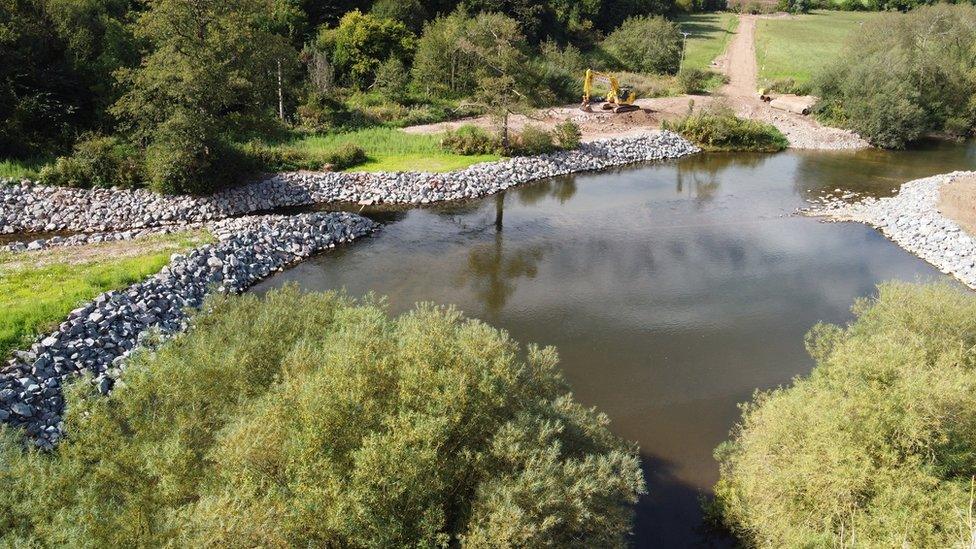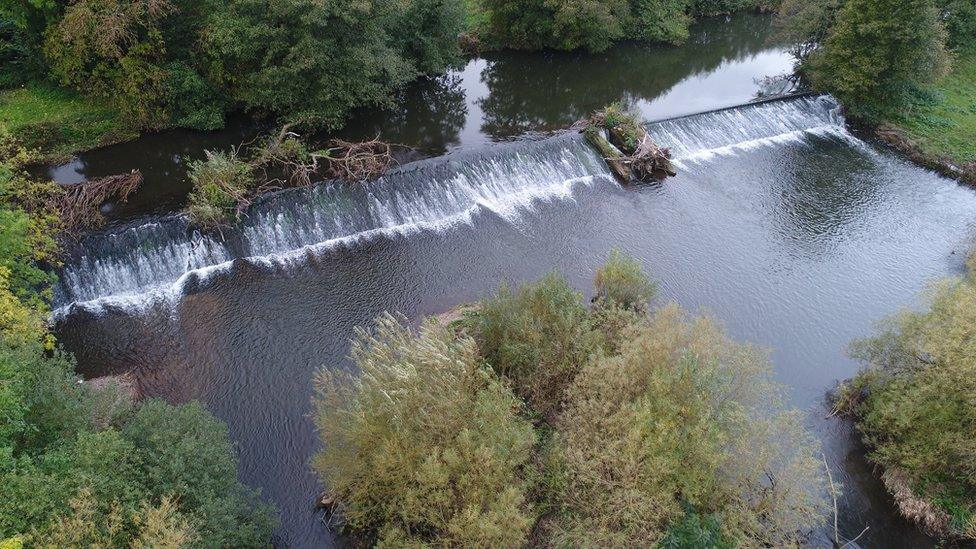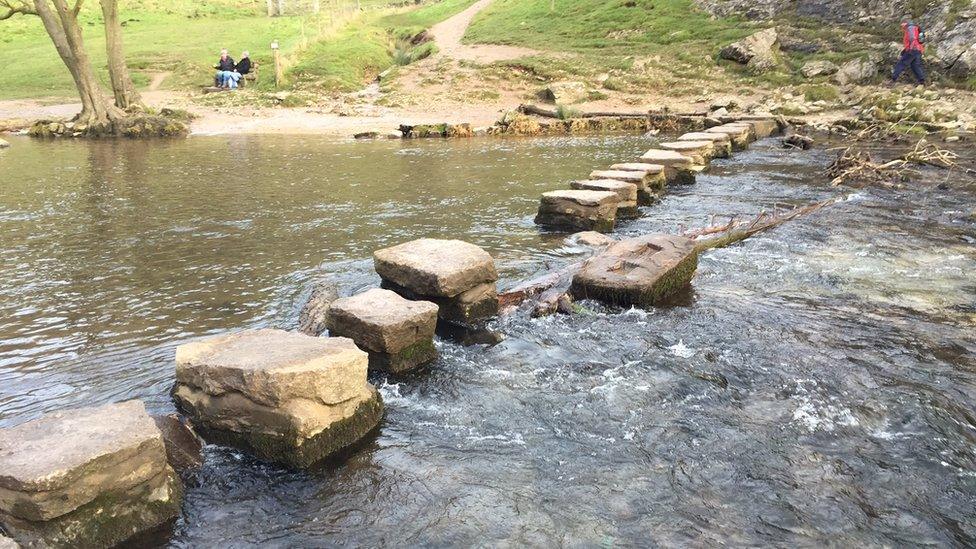Dovecliffe medieval weir removed in £2.5m project
- Published

The agency said the weir removal has improved biodiversity
A £2.5m project to remove a weir and open up a river has been completed.
The Dovecliffe weir removal project, on the Derbyshire/Staffordshire border, is the biggest of its kind in the country, according to the Environment Agency, which carried out the work.
The agency said the removal would allow the free passage of fish along the River Dove and its tributaries for the first time in almost 900 years.
One biologist said the work would also improve biodiversity.
'Natural river environment'
The two-year project, at Egginton, has allowed more than 550km (341 miles) of watercourse to be opened up, the agency said.
It said all fish species in the area could now access their spawning grounds which, in turn, would benefit water quality and wider floodplain diversity.


The weir is believed to date back to medieval times
Art thou weir-y
The exact date the weir was built is unknown but the existence of a mill in the mid-14th Century and a small bridge in 1301 suggested some feature existed in the medieval period to manage water.
Details of the weir are shown on Ordnance Survey maps from the 1880s onwards.
During the first half of the 20th Century , the weir suffered from neglect and there were breaches reported in the 1950s and 1990s.
Source: Environment Agency

Christopher Grzesiok, the agency's fisheries biologist, said: "Weirs, such as this one at Dovecliff, have broken the dynamic function of rivers, resulting in a loss of ecological diversity and river function.
"By removing the weir, we will improve biodiversity and fish passage through the entire Dove catchment.
"It will also improve the habitat for fish to spawn and grow as it creates a more natural river environment, without the impact of human-made barriers."
Paul Herickx, the agency's project executive, said: "The weir, which dates back to the 1200s, was structurally assessed in 2016 and sections were found to be in a poor condition.
"The weir no longer served a functional purpose and, as it would continue to have been costly to repair and maintain, its removal was the best solution."
The agency said it planned to replant trees that were removed during the work and also investigate an ancient wooden river structure discovered during the project.

Follow BBC East Midlands on Facebook, external, Twitter, external, or Instagram, external. Send your story ideas to eastmidsnews@bbc.co.uk, external.
Related topics
- Published6 December 2016
